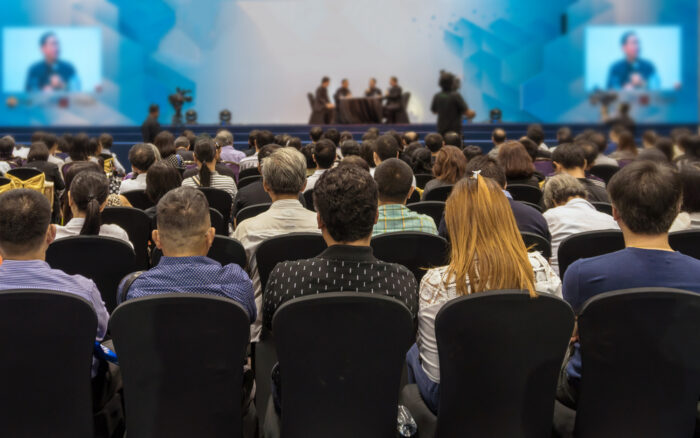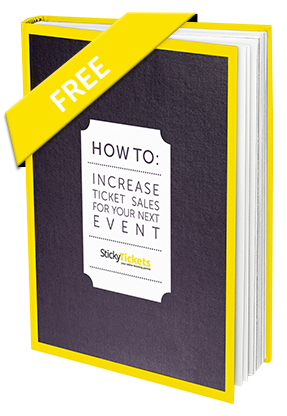Unleash the Magic: Why Event Marketing is Your Ticket to Event Success

Imagine you’ve got a fantastic event in the works, something special you know deserves attention. Instead of settling for mediocrity, why not make a splash that resonates for years to come? That’s where event marketing steps in, ensuring your event becomes the talk of the town! Event marketing is the promoter that draws in the crowd. Even the most remarkable event won’t make an impact if no one knows about it. With effective marketing strategies, you put your event on everyone’s radar.
From targeted social media campaigns to eye-catching flyers and engaging press releases, event marketing employs tactics to capture the audience’s attention and generate excitement. But there’s more to event marketing than just filling seats. It’s about creating an experience that stays with attendees long after the event ends. It sets the stage for your event’s main act, building anticipation and ensuring the audience is fully engaged when the moment arrives. By crafting teaser campaigns, exclusive behind-the-scenes glimpses, and utilising interactive elements, event marketing enhances the overall experience and leaves a lasting impression on attendees.
And here’s the best part: event marketing isn’t just about one night of success. It’s about cultivating a community, a loyal following that eagerly anticipates your event year after year. With the right marketing tactics, your event can become legendary, talked about with excitement and anticipation. Through post-event surveys, follow-up emails, and ongoing engagement on social media platforms, event marketing fosters a sense of belonging and keeps the momentum going long after the curtains have closed.
The Top Benefits Of Event Marketing For Your Event’s Success

When it comes to making your event truly unforgettable, remember this: event marketing is not just the finishing touch; it’s the catalyst that ignites the entire experience. Without event marketing you won’t attract the right crowd, ignite excitement or foster the right brand identity you are looking for. We discuss the top benefits of event marketing below;
Party People Galore: With event marketing, you’ll attract a steady stream of enthusiastic attendees to your venue. Say goodbye to empty spaces and hello to a lively atmosphere as word spreads about your event’s offerings.
Buzz Buzz Baby: Generate excitement and interest in your event with strategic marketing efforts. By sparking conversations and online chatter, you’ll create a buzz that draws people in without the need for exaggerated claims.
Memory Lane: Create meaningful experiences for your attendees that will leave a lasting impression. Through thoughtful planning and execution, your event will be remembered long after the lights have dimmed and the music has stopped.
Brand Bonanza: Elevate your brand’s visibility and reputation through effective event marketing. By showcasing your brand in a positive light and providing a memorable experience, you’ll cultivate goodwill and loyalty among attendees.
VIP Treatment: Make your attendees feel valued and appreciated with special treatment and exclusive perks. By offering a VIP experience, you’ll enhance their satisfaction and increase their likelihood of returning for future events.
Social Media Stardom: Capitalise on the power of social media to amplify the reach and impact of your event. By creating shareable moments and encouraging attendee engagement, you’ll transform your event into a digital sensation.
Community Connection: Foster a sense of belonging and camaraderie among attendees by building a community around your event. Through ongoing communication and engagement, you’ll cultivate a loyal following that supports your brand’s initiatives.
With event marketing, you have the opportunity to elevate your event to new heights and make a meaningful impact on your audience. So, seize the moment and leverage the power of marketing to ensure your event stands out from the crowd.
Missed Opportunities. What Happens If You Don’t Market Your Event?
Imagine the disappointment of organising an event only to find it sparsely attended, with silence prevailing over the anticipated buzz of conversation. This is a very real possibility when event marketing is neglected. Your carefully planned gathering may end up feeling like a missed opportunity, like hosting a party without sending out invitations. Without effective marketing, your event may struggle to attract attention, leaving your intended audience simply unaware of its existence.
In a crowded landscape of events, yours could fade into the background, missing out on potential attendees who opt for more visible options. Without adequate marketing efforts, your event risks being overshadowed by others that have successfully captured the spotlight. It may become lost amid the noise, failing to make the impact you envisioned. Not to mention the financial implications of low attendance.
Without sufficient ticket sales and revenue from concessions or merchandise, your event’s profitability will suffer. The absence of attendees translates to significant losses, impacting your bottom line. The difference between a fruitful event and one that fails to be, often is a direct result of event marketing, or lack of successful event marketing.
How To Market Your Event Effectively To Ensure Its Success

Now you’re convinced you should market your event, you need to know how. Whilst it does depend on your specific event will differ depending on a number of factors, there are steps you can take to help increase the success. We’ve listed a number of steps to effectively market your event and maximise its impact below.
Dream Big, Plan Bigger: Begin by envisioning your event’s overall concept and atmosphere. Outline key elements such as theme, attractions, and ambiance, aiming for a plan that’s ambitious yet achievable.
Craft Your Pitch-Perfect Persona: Understand your target audience intimately, considering their interests, preferences, and motivations. Tailor your marketing messages to resonate with their needs and desires, aiming for a connection that feels personal and compelling.
Spread the Word Like Wildfire: Utilise a diverse range of marketing channels, including social media, traditional advertising, and grassroots outreach. Ensure your event’s message reaches a wide audience, leaving no opportunity untapped to generate interest and excitement.
Create Hype-Worthy Content: Develop engaging and shareable content that captures attention and builds anticipation. Utilise teaser trailers, behind-the-scenes glimpses, and interactive elements to pique curiosity and keep your audience eagerly anticipating the main event.
Partner Up for Maximum Impact: Collaborate with influencers, local businesses, and community stakeholders to expand your reach and credibility. Leverage partnerships to amplify your event’s visibility and attract diverse audiences.
Roll Out the Red Carpet: On event day, focus on delivering an unforgettable experience for attendees. Pay attention to every detail, from decor to hospitality, ensuring that every aspect of your event reflects quality and professionalism.
Keep the Momentum Going: Extend the excitement beyond the event itself by maintaining communication with attendees post-event. Send follow-up emails, share highlights on social media, and tease future events to sustain interest and loyalty.
Tips For Event Marketing For Specific Events

As discussed, different types of events may require different approaches to marketing in order to effectively reach their target audience and achieve success. Here’s a breakdown of some common event types and the event marketing strategies that tend to work best for each:
- Conferences and Trade Shows:
- Content Marketing: Create informative blog posts, articles, and whitepapers related to the industry topics covered at the event.
- Email Marketing: Send personalised invitations, updates, and reminders to attendees, speakers, and exhibitors.
- Social Media Marketing: Utilise platforms like LinkedIn and Twitter to engage with industry professionals, share event highlights, and encourage participation.
- Networking Events: Host pre-event mixers or networking sessions to facilitate connections among attendees and promote the event’s networking opportunities.
- Music Festivals and Concerts:
- Influencer Marketing: Partner with musicians, bands, and social media influencers to promote the event to their followers.
- Social Media Contests: Run contests and giveaways on platforms like Instagram and TikTok to generate excitement and encourage user-generated content.
- Guerrilla Marketing: Use creative and unconventional tactics to grab attention, such as street art, flash mobs, or interactive installations.
- Sponsorship Activation: Collaborate with sponsors to create branded experiences or activations within the festival grounds to increase visibility and engagement.
- Corporate Events and Seminars:
- Thought Leadership: Position key speakers or presenters as industry experts and leverage their expertise to attract attendees.
- Targeted Advertising: Use pay-per-click (PPC) advertising on platforms like Google Ads or LinkedIn to target specific industries or job titles.
- Email Sequences: Implement a series of automated email sequences to nurture leads and provide valuable information leading up to the event.
- Referral Programs: Encourage past attendees to refer their colleagues or connections to the event by offering incentives or discounts.
- Community Events and Festivals:
- Local Partnerships: Collaborate with local businesses, organisations, and community leaders to co-promote the event and reach a broader audience.
- Street Team Promotion: Deploy street teams to distribute flyers, posters, and promotional materials in high-traffic areas within the community.
- Community Engagement: Engage with local residents through community forums, social media groups, and neighbourhood associations to build excitement and support for the event.
- Public Relations: Pitch event stories to local media outlets, newspapers, and online publications to generate buzz and coverage leading up to the event.
- Product Launches and Experiential Events:
- VIP Previews: Host exclusive previews or launch parties for select customers, influencers, and media to generate early buzz and excitement.
- Experiential Marketing: Create immersive brand experiences or activations that allow attendees to interact with your product or service in a memorable way.
- Live Demonstrations: Showcase your product or service in action through live demonstrations, workshops, or interactive experiences.
- Influencer Collaborations: Partner with relevant influencers or brand ambassadors to create authentic and engaging content that showcases your product or service to their followers.
Neglecting event marketing can have far-reaching consequences that extend beyond mere disappointment. It can result in missed opportunities, overlooked invitations, and financial losses. Without effective promotion, your carefully planned event risks fading into obscurity amidst a sea of competing attractions, leaving attendees unaware of its existence and potential. Reflecting on the aftermath of an underwhelming turnout underscores the importance of strategic promotion and serves as a valuable lesson for future endeavours.
Remember, effective event marketing is not just about attracting attendees—it’s about creating buzz, generating excitement, and ensuring the success and longevity of your event. So, prioritise promotion, engage your audience, and unleash the full potential of your event on the world stage. With the right marketing strategies in place, your event can truly shine and leave a lasting impression on all who attend. Whether your event is big or small, corporate or charity, free or paid, you can list, promote, sell tickets and manage your event easily, all in one place with Sticky Tickets. Get in touch today!



